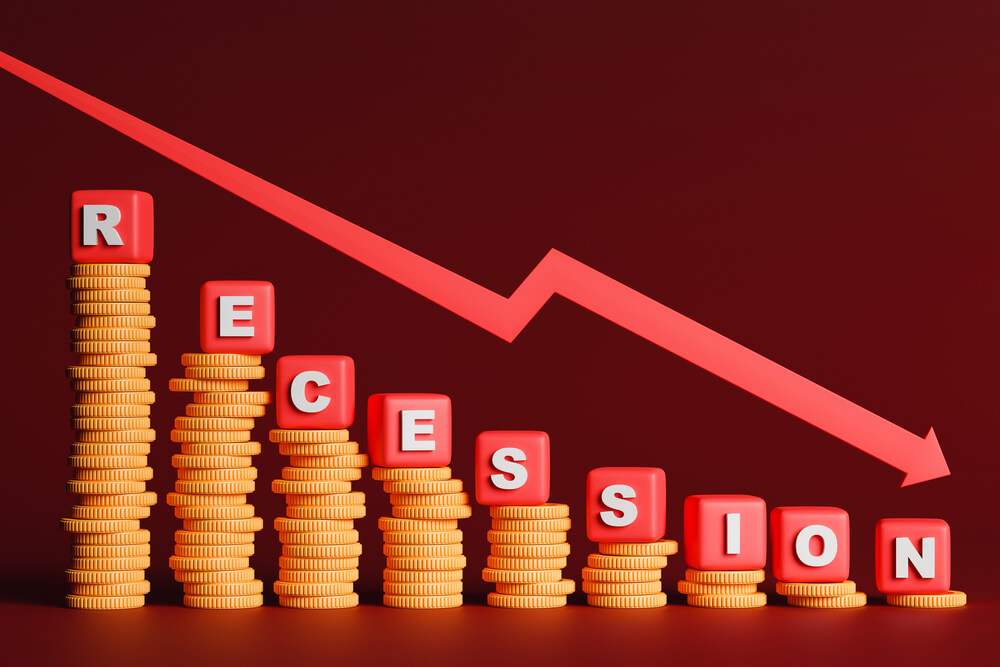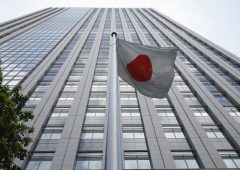USA is Dodging Bullets With the Recession, but for How Long?
09.08.2024 9:00 2 min. read Alexander Stefanov
Concerns about a potential US recession have intensified following a global stock market drop and a weaker-than-expected jobs report.
Concerns over a potential US recession are resurfacing as investors react to a recent global stock market decline. The sell-off, which began last Friday, has been fueled by apprehensions about the state of the American economy, exacerbated by a disappointing jobs report.
Stock values have plummeted, with many blaming the US Federal Reserve for maintaining high interest rates, which are currently between 5.25% and 5.5%, despite signs of economic cooling.
However, experts suggest that a “soft landing” might still be achievable. This scenario would allow inflation to decrease towards the Fed’s 2% target without causing a severe rise in unemployment.
Jason Furman, a Harvard professor and former White House economist, argues that most economic indicators are still showing growth. He believes that predictions of an imminent recession may be overstated.
The latest jobs report showed a continued increase in unemployment, now at 4.3%, marking the fourth consecutive month of rising jobless rates. Additionally, weak performance from major companies like McDonald’s and Diageo indicates declining consumer confidence.
Despite this, some economists remain optimistic. Ernie Tedeschi, a former chief economist with the White House Council of Economic Advisors, suggests that the job growth figure of 114,000 is sufficient to meet labor supply needs and doesn’t necessarily indicate a downturn.
The Federal Reserve is facing pressure to lower interest rates in its upcoming September meeting, with expectations now leaning towards multiple rate cuts this year. Yet, the Fed remains cautious.
San Francisco Fed President Mary Daly and other officials believe there is still confidence that the economy is slowing but not collapsing. They emphasize that the current unemployment rate is relatively low compared to historical norms.
Although concerns about rising delinquency rates on car loans and credit cards exist, they are not yet at crisis levels seen in the 2008 financial downturn.
As the US navigates these turbulent economic waters, it remains uncertain whether a recession can be avoided entirely, but current data suggests that a full-blown economic collapse may not be imminent.
-
1
Billionaire Slams Meme Stock Hype and Sounds Alarm on U.S. Fiscal Health
15.06.2025 18:00 2 min. read -
2
Robert Kiyosaki Predicts 2025 “Super-Crash,” Urges Hoarding Gold, Silver, and Bitcoin
23.06.2025 13:31 2 min. read -
3
Billionaire Investor Sees Dollar Crash If Key Support Breaks
18.06.2025 15:00 1 min. read -
4
Nassim Taleb Says Global Trust Is Shifting from the Dollar to Gold
22.06.2025 17:00 1 min. read -
5
Geopolitical Shockwaves Hit Ethereum Hard While Bitcoin Stays Resilient
22.06.2025 16:21 1 min. read
What Brian Armstrong’s New Stats Reveal About Institutional Crypto Growth
Coinbase CEO Brian Armstrong has spotlighted a significant acceleration in institutional crypto adoption, driven largely by the surging popularity of exchange-traded funds and increased use of Coinbase Prime among major corporations.
Whales Buy the Dip as Retail Panics: This Week in Crypto
The latest market turbulence, fueled by geopolitical tensions and investor fear, offered a textbook case of how sentiment swings and whale behavior shape crypto price action.
What Will Happen With the Stock Market if Trump Reshapes the Fed?
Jefferies chief market strategist David Zervos believes an upcoming power shift at the Federal Reserve could benefit U.S. equity markets.
U.S. Bank Advises Clients to Drop These Cryptocurrencies
Anchorage Digital, a federally chartered crypto custody bank, is urging its institutional clients to move away from major stablecoins like USDC, Agora USD (AUSD), and Usual USD (USD0), recommending instead a shift to the Global Dollar (USDG) — a stablecoin issued by Paxos and backed by a consortium that includes Anchorage itself.
-
1
Billionaire Slams Meme Stock Hype and Sounds Alarm on U.S. Fiscal Health
15.06.2025 18:00 2 min. read -
2
Robert Kiyosaki Predicts 2025 “Super-Crash,” Urges Hoarding Gold, Silver, and Bitcoin
23.06.2025 13:31 2 min. read -
3
Billionaire Investor Sees Dollar Crash If Key Support Breaks
18.06.2025 15:00 1 min. read -
4
Nassim Taleb Says Global Trust Is Shifting from the Dollar to Gold
22.06.2025 17:00 1 min. read -
5
Geopolitical Shockwaves Hit Ethereum Hard While Bitcoin Stays Resilient
22.06.2025 16:21 1 min. read



